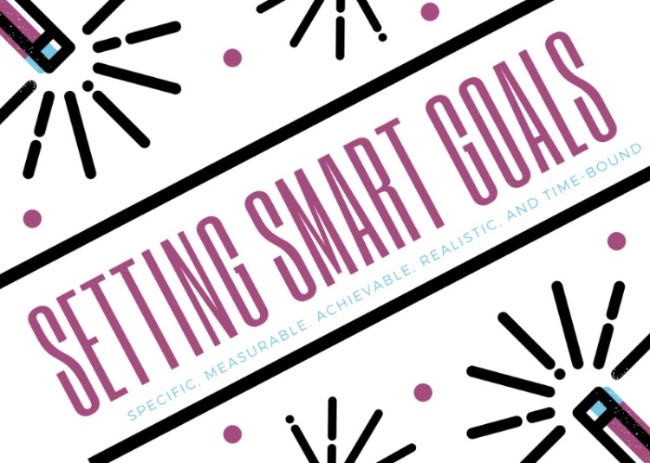Setting SMART Goals
Published January 21, 2020

The start of a new year often brings new resolutions. However, setting resolutions is about more than the wish you made as the clock struck midnight on New Year’s Eve. Following through with your resolutions requires goal setting, motivation, and discipline. Settings goals for yourself in 2020 is important, but making sure those goals are “SMART” is imperative to your success.
SMART Goals are Specific, Measurable, Achievable, Realistic, and Time-bound.
Specific: Goals should be clear, and state specifically what you want to accomplish in a way that is detailed, focused, and well defined. Being specific in your intentions will allow you to recognize when you have achieved your goal. Tip: Use the popular ‘w’ questions to guide you – who, what, when, where, why.
Measurable: Establish concrete criteria for measuring progress toward the attainment of each goal you set. Goals should be measurable so that you can determine whether or not you are making progress. This applies to both the end result and the milestones along the way. Tip: A goal is commonly measurable if the objectives can be counted or quantified.
Achievable: Although your goals should include a challenge, they also need to be possible. It does not make sense to set a goal that is either too difficult to achieve or beyond your capabilities. Tip: Be cautious not to set goals that someone else has the power over. For example, "Get a promotion" depends on who else applies, and on the recruiter's decision. But "Get the experience and training that I need to be considered for that promotion" is entirely down to you.
Realistic: To be realistic, a goal must represent an objective toward which you are both willing and able to work. Your goal should consider the availability of resources such as your knowledge, time, and finances. If you start out with an improbable goal, you may feel defeated before you’ve even begun. Tip: Your goal is probably realistic if you truly believe that it can be accomplished.
Time-bound: Your goals should be grounded within a timeframe for completion. Deadlines or target dates create an important sense of urgency, prompting you to take action and concentrate your efforts. Tip: Remember to consider what should be accomplished throughout your journey. Setting milestones is useful so that you can evaluate yourself regularly to see if you are on the right track with timing and progress.
Challenge yourself to make a list of SMART goals in different areas of your life and stick to them. We’ve come up with a list of four key areas:
- Career
- Financial
- Wellness (Mental and Physical Health)
- Relationships (Family, Social, Spiritual)
Takeaway: Goals are meant to inspire motivation, not discouragement. Having poorly constructed goals can diminish your motivation and make you feel defeated. The SMART technique provides you with a roadmap to develop well-constructed goals. As you evaluate your progress, also remember to constantly evaluate your goals and re-set them as needed. Good luck!
SMART is an acronym that has been credited to both Peter Drucker (1955) and G.T.Doran (1991), though it is difficult to identify if either of these two were the first people to use the term ‘SMART’ with reference to objectives.
